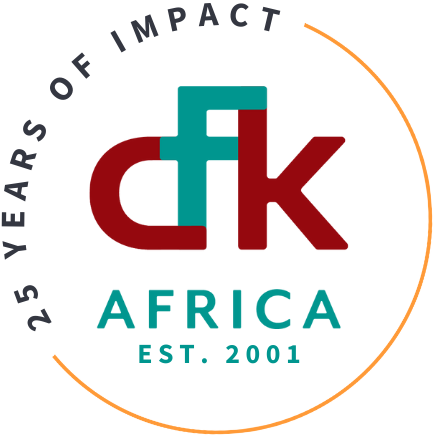Written by Huijoo Shon, CFK Africa Peacock Fellow and PhD candidate in City and Regional Planning at the University of North Carolina at Chapel Hill.
When I first started making my way to CFK Africa’s headquarters in Nairobi, many things felt unfamiliar. However, over the course of my Peacock Fellowship, those routes have become comforting. Walking in step with others, listening to their voices, and sharing in moments of everyday life have been quietly settling.
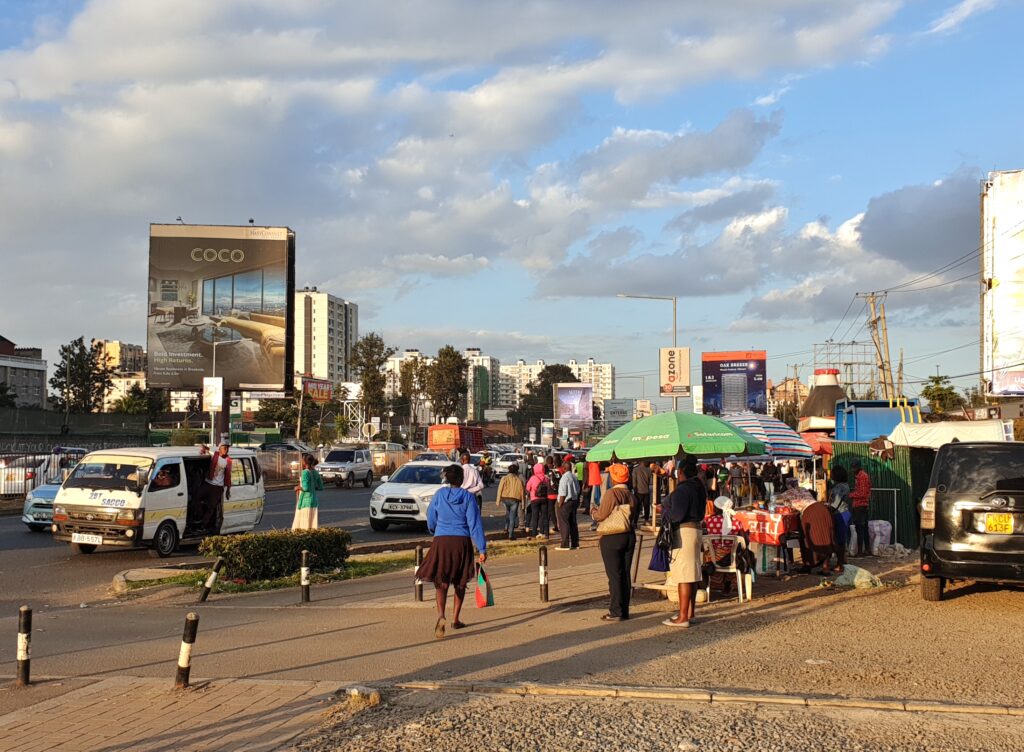
Some days at CFK’s HQ in Kibera involve intense discussions; other days are spent in the field or immersed in individual work. What strikes me most is how much the people here shape my daily experience. Their words and actions offer genuine encouragement, challenge my assumptions, and spark new lines of inquiry. I often find myself reflecting on what it means to be not just an external researcher but an engaged partner and friend—someone who can meaningfully contribute to CFK Africa’s mission to empower youth in slums and support the diverse communities in Kibera striving to build more dignified places.
During the first half of my fellowship, I had the opportunity to accompany CFK Africa teams on their diverse projects. I joined field visits to Kajiado and Mathare, supporting girls’ empowerment initiatives, and observed school-based nutrition monitoring programs within Kibera. At first glance, these activities fell outside the scope of my research interests in urban planning and climate adaptation. Yet watching CFK staff engage stakeholders, co-design interventions, and navigate complex social contexts has been incredibly relevant, underscoring the shared aim underlying all of our work: fostering more just and sustainable futures. These experiences expanded my understanding of the realities of community-based development, while deepening my sense of connection to CFK’s broader mission.
Observing the wide range of CFK Africa’s projects and the thoughtfulness with which staff approach their work led me to ask what I could meaningfully contribute as a research fellow. This questioning shaped my collaboration with the monitoring and evaluation team to analyze survey data from young mothers participating in CFK’s new Book Club program. Together, we worked to interpret the girls’ perspectives and discuss potential program refinements.
I also joined the Clinic Services Community Survey team on survey visits, gaining firsthand insights into how residents experience local health systems and negotiate access to care. Reviewing and analyzing these data in collaboration with staff has become an important space for mutual learning and critical reflection.
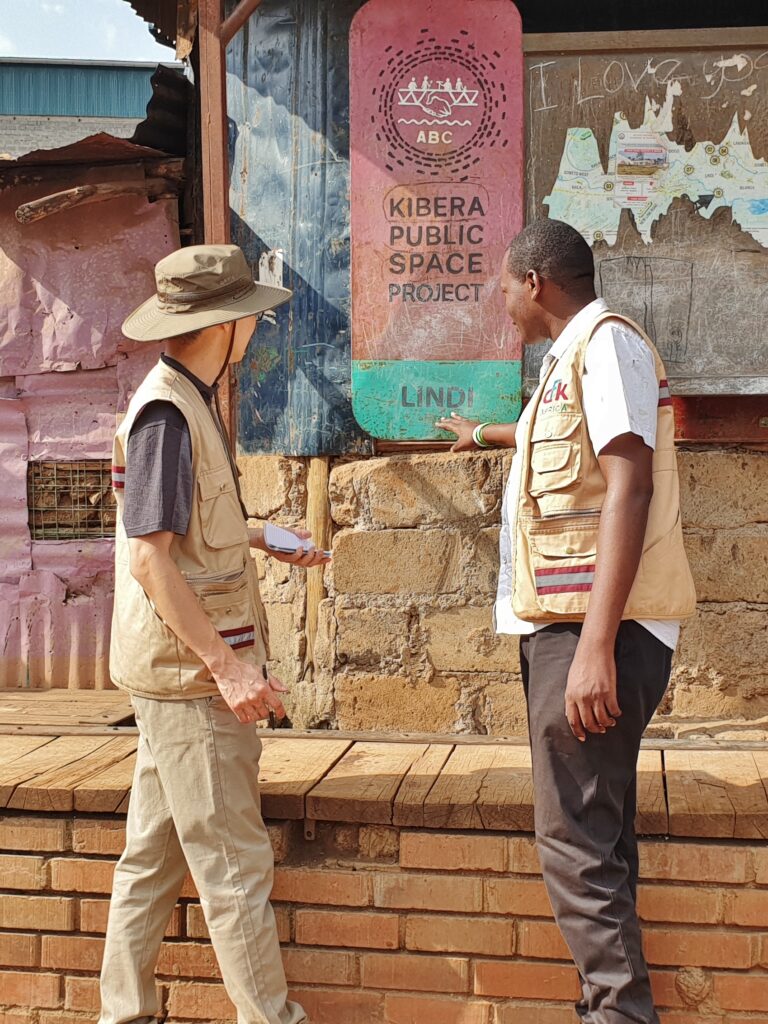
During the second half of my fellowship, I have been working on a “Shared Infrastructure Mapping” initiative. Initially, the idea seemed straightforward – we aim to “put shared infrastructure on a map” in order to identify gaps and inform planning. I believed that visualizing spatial distributions of water points, shared toilets, and open spaces would provide a foundation for targeted improvements related to issues of water, sanitation, and hygiene. However, spending time in the field revealed the limits of this simple approach. Coordinates and shapes on a map alone cannot capture the layered narratives, local knowledge, and everyday practices that sustain the use of shared spaces.
For example, even among communal toilets, no two sites are managed identically. In some cases, trusted household members serve as caretakers who open and close facilities daily, maintaining reliability. Elsewhere, neighborhood committees establish usage fees and negotiate rules collectively. In certain areas, facilities have deteriorated due to neglect or strained resources; in others, residents have organized to raise funds and implement improvements themselves. Encountering these diverse models firsthand underscored for me that this mapping project should not merely fill in a map, but we must also recognize local strategies and adaptive practices that residents employ to manage shared infrastructure.
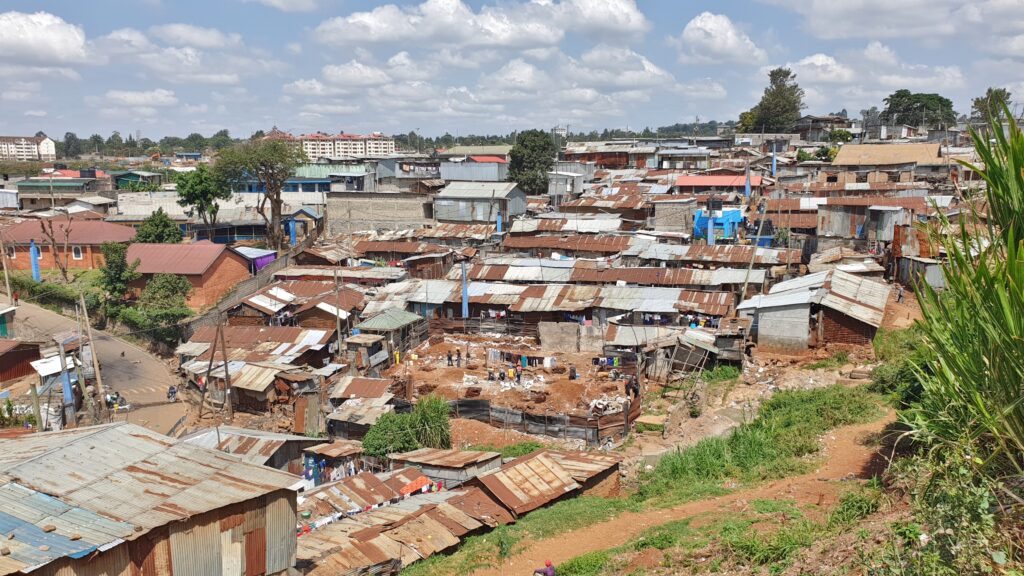
This diversity of local approaches has presented both a challenge and a valuable opportunity for me as a researcher. Areas that might simply be labeled “resource-constrained” in traditional mapping practices often reveal, upon closer examination, intricate systems of negotiation, informal governance, and creative problem-solving. Traces of local adaptation—even if partial or imperfect—hold real significance. Failing to document and respect these efforts risks producing recommendations or plans that are superficial and disconnected from the lived realities and capacities of the communities involved.
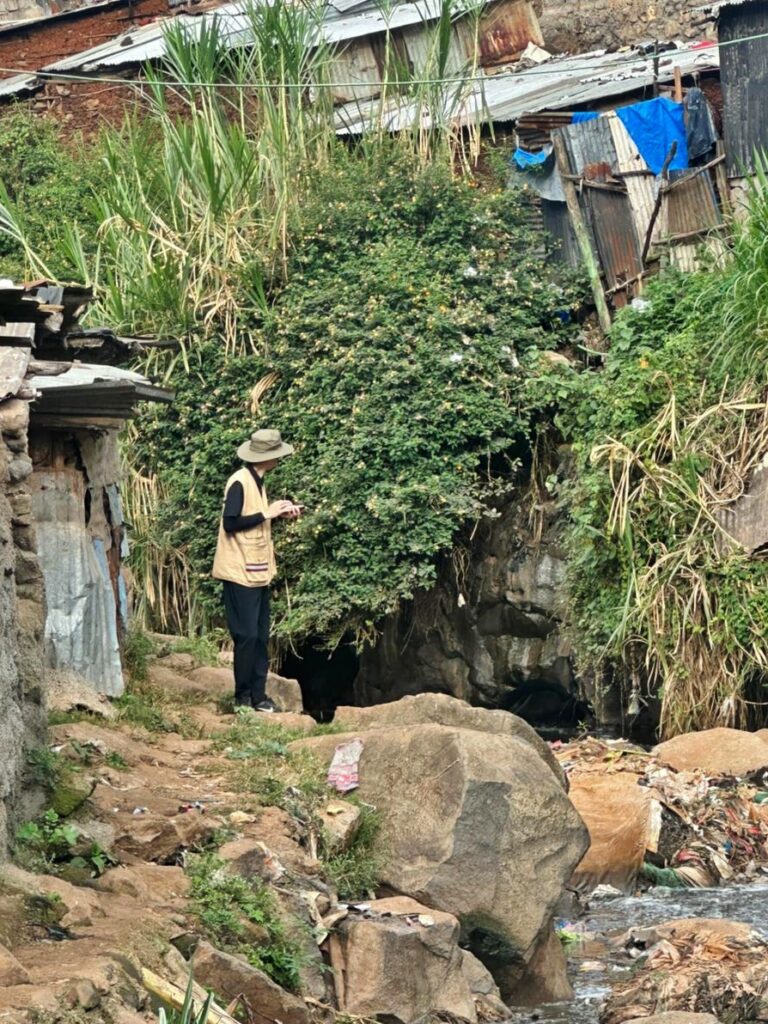
Throughout the process of designing this project, I have engaged in many in-depth conversations with CFK Africa colleagues and field assistants. We also conducted field interviews with facility operators and residents to better understand how shared resources and spaces are managed and used—including patterns around opening times and days, maintenance structures, and usage fees. Residents often elicited unexpected, and at times challenging, questions like, “Why are you asking this?” Each of these moments became a prompt for us to reflect on our purpose and methods. Whose knowledge is this map meant to serve? Whose planning processes will it inform? Even now, these questions help guide our approach.
As we complete this initial phase of the mapping project, I find myself returning to a core challenge: how can a single map carry multiple stories and account for the many ways people inhabit and experience a place? Just like the everyday routes that once felt unfamiliar but have since become grounding, this project has been shaped by walking alongside others—following their paths, listening closely, and learning from the ways they navigate shared spaces. These reflections continue to guide how we approach both mapping and meaning-making—together.
